In the text on the C tablet the stars around
glyph 408 are different from those in the G text, yet in a way they are the same
- connected with the change from one year to the next:
 |
 |
 |
 |
|
Cb1-1 |
Cb1-2 |
Cb1-3 |
Cb1-4 (396) |
|
°April
17 (107) |
18 (*28) |
19 |
rutua - te pahu - rutua te maeva
- atua rerorero - atua hiko ura - hiko o tea - ka
higa te ao ko te henua ra ma te hoi atua |
|
°October
17 (290) |
18 (*211) |
19 |
|
April 21
(111) |
22 (*32) |
23 |
|
October
21 (*214) |
22 (295) |
23 |
|
'March 25 |
26 (85) |
27 |
|
'September 24 |
25 (268) |
26 |
|
"March 11 |
12 (71) |
13 |
|
"September 10 |
11 (254) |
12 |
 |
 |
 |
|
Cb1-5 |
Cb1-6
(398) |
Cb1-7 |
|
no star
listed (34) |
ξ
Arietis
(35.0),
ρ Ceti
(35.4),
ξ² CETI
(35.9) |
σ Ceti
(36.9) |
|
ASELLUS
PRIMUS = θ Bootis
(217.8) |
τ Lupi, δ Oct. (218.1),
φ Virginis (218.7)
FOMALHAUT
(α Piscis Austrini)
|
σ Lupi (219.1), ρ Bootis
(219.5),
HARIS =
γ Bootis
(219.7) |
|
°April
20 |
21 (*31) |
22 (112) |
23 |
|
°October
20 |
21
(*214) |
22 (295) |
23 |
|
April 24 |
25 (*35) |
26 (116) |
27 |
|
October
24 |
25 (*218) |
26 |
27 (300) |
|
'March
28 |
29 |
30 |
31 (90) |
|
'September 27 |
28 |
29 |
30 (273) |
|
"March
14 (73) |
15 |
16 |
17 |
|
"September 13 |
14 |
15 |
16 (259) |
 |
 |
 |
 |
|
Cb1-8 |
Cb1-9 |
Cb1-10
(402) |
Cb1-11 |
|
ν CETI
(37.9) |
ν
ARIETIS
(38.5), δ, ε Ceti (38.8) |
μ
Arietis (39.4),
HEAD OF
THE FLY = 35 Arietis
(39.6),
KAFFALJIDHMA = γ Ceti
(39.8) |
π
Ceti, ο Arietis (40.0),
ANGETENAR = τ¹
Eridani,
μ Ceti (40.2),
RIGHT
WING = 39 Arietis
(40.9) |
|
σ Bootis (220.2), η
Centauri (220.4) |
ρ Lupi (221.0),
TOLIMAN
= α Centauri
(221.2), π Bootis (221.8), ζ Bootis (221.9) |
31
Bootis (222.0),
YANG MUN = α Lupi
(222.1),
RIJL AL
AWWA = μ Virginis
(222.5), ο Bootis
(222.9) |
IZAR = ε
Bootis
(223.0),
109
Virginis, α
Apodis (223.3), μ
Librae (223.8) |
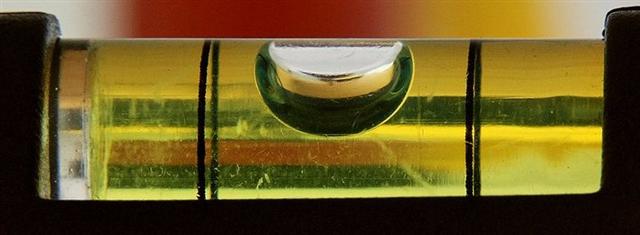
|
Bharani-2 /
Stomach-17
π
Arietis (41.2),
MIRAM =
η Persei
(41.3),
BHARANI
= 41 Arietis
(41.4), τ² Eridani, σ Arietis (41.7) |
TA LING
(Great Mound) = τ Persei
(42.4) |
ρ
Arietis (43.0),
GORGONEA
SECUNDA = π Persei
(43.5),
ACAMAR = θ Eridani
(43.6),
ε Arietis (43.7),
λ Ceti
(43.9)
DENEBOLA (β
Leonis) |
|
ºApril
24 (114 = 4 * 28.5) |
25 |
26 (116
= 4 * 29) |
 |
 |
 |
|
Cb1-12
(404) |
Cb1-13 |
Cb1-14 |
|
manu rere - kua rere ga manu - ki te ragi |
eaha te nuku erua |
koia kua huki |
|
°October
24 |
25 |
26 (299) |
|
Al
Zubānā-14a /
Visakha-16 /
Root-3
ZUBEN ELGENUBI
= α Librae
(224.2), ξ Bootis, ο Lupi (224.5) |
KOCHAB =
β Ursae Min.
(225.0), ξ Librae
(225.7) |
KE KWAN
(Cavalry Officer) = β Lupi
(226.3),
KE KWAN = κ Centauri
(226.4),
ZUBEN ELAKRIBI
= δ Librae
(226.8), π¹ Oct. (226.9) |
|
MENKAR
(Nose)
= α Ceti
(44.7) |
3h
(45.7)
GORGONEA TERTIA = ρ Persei
(45.1),
ALGOL (Demon's Head)
= β Persei
(45.9) |
ι
Persei (46.1),
MISAM = κ Persei
(46.2),
GORGONEA QUARTA = ω Persei
(46.7),
BOTEIN = δ Arietis
(46.9) |
|
ºApril 27 |
28
(118 = 408 - 290) |
29 |
 |
 |
 |
|
Cb1-15 |
Cb1-16 (408) |
Cb1-17 |
|
e niu tu |
ki te ariki - e ka hua ra tona rima |
koia kua iri i ruga o te rima - e o to vaha
mea |
|
°October
27 (300) |
28 |
29 |
|
ω Bootis
(227.2),
NEKKAR = β Bootis
(227.3),
σ Librae (227.5), π² Oct. (227.7),
NADLAT = ψ Bootis
(227.8), π Lupi (227.9) |
15h
(228.3)
ZUBEN HAKRABIM
= ν
Librae
(228.3), λ Lupi (228.9) |
ω Oct. (229.3), ι
Librae (229.6), κ Lupi (229.7),
ζ
Lupi (229.8) |
|
ζ
Arietis
(47.7) |
ZIBAL = ζ Eridani
(48.0),
κ
Ceti
(48.9) |
τ
Arietis (49.7) |
|
ºApril 30 |
ºMay
1 (121) |
2 |
 |
 |
 |
|
Cb1-18 (410 = 27 +
383) |
Cb1-19 (411 = 121 + 290) |
Cb1-20 |
|
manu moe ra |
ki to mata |
e nuku mata |
|
°October
30 |
31
(*224) |
°November
1 |
|
Al Zubānā-14b
χ Bootis
(230.3),
PRINCEPS = δ Bootis
(230.6),
ZUBEN ELSCHEMALI
= β Librae
(230.8) |
μ Lupi, γ Tr. Austr.
(231.3), ο Librae (231.8) |
ο Cor. Borealis
(232.0), δ Lupi (232.1), φ¹, ν² Lupi (232.2), ν¹
Lupi (232.3), ε Lupi (232.4), φ² Lupi (232.5),
PHERKAD = γ Ursae Min.
(232.6), ε
Librae (232.7), η Cor. Borealis (232.8), υ Lupi
(232.9) |
|
ALGENIB PERSEI
= α Persei
(50.0), ο Tauri (50.2), ξ Tauri (50.8)
GIENAH (γ Corvi) |
σ Persei (51.6) |
no star listed (52) |
ψ Persei (53.1)
ACRUX (α CRUCIS)
|
|
ºMay 3 |
4 |
5 (125) |
6 |
 |
 |
 |
 |
|
Cb1-21 |
Cb1-22 |
Cb1-23 |
Cb1-24 (416) |
|
hoea |
ko te rima |
kua oo ki te vai |
ma te ua |
|
°November
2 |
3 (*227) |
4 (308) |
5 (*229) |
|
ALKALUROPS = μ Bootis
(233.1),
ED ASICH = ι Draconis
(233.2) |
NUSAKAN = β Cor. Bor.
(234.0), κ¹ Apodis (234.3), ν Bootis (234.7),
ζ Librae (234.9) |
θ Cor. Borealis
(235.3), γ Lupi (235.6),
GEMMA
= α Cor. Bor.,
ZUBEN ELAKRAB
= γ Librae,
QIN = δ Serpentis,
ε Tr. Austr. (235.7), μ Cor. Borealis
(235.8), υ Librae (235.9)
SIRRAH (α Andromedae)
|
φ Bootis
(236.2), ω Lupi, τ Librae (236.3), ψ¹ Lupi
(236.7), ζ Cor. Borealis (236.9) |
 |
 |
 |
| COR SERPENTIS |
TAU-ONO |
ALCYONE |
The Fly (Musca Borealis, Bharani) arrived 15 days before Alcyone - and 11 days after Hamal (with Thuban close to the Full Moon in the preceding night).
Significantly Algol was at glyph 408 = 118 (ºApril 27) + 290, and 118 = 472 / 4 = 4 * 29½. According to Hevelius Algol was at the nose of the Demon's Head:
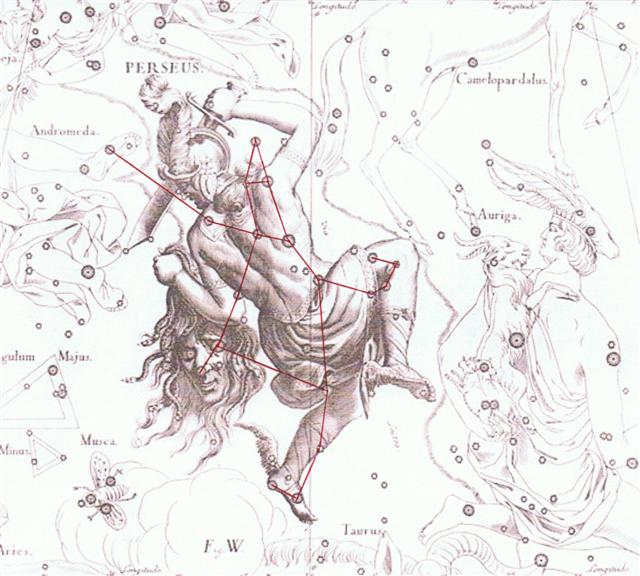
However, I have suggested the stars at the time when Easter Island was 'reborn' as San Carlos should be used when reading the C text:
... On the following day, 20 November 1770, Commander José Bustillo took formal possession of Easter Island 'in the name of the King and of Spain, our Lord and Master Don Carlos the third', renaming the island 'San Carlos'. Several hundred Rapanui - probably members of the Koro 'o 'Orongo tribe of the eastern 'Otu 'Iti - observed the ceremony not far from Poike's parasitic cones Parehe, Teatea, and Vai 'a Heva, on the tops of which the Spaniards had planted three crosses. Following three boisterous 'Viva el Rey!' for each cross, the land party let off three salvos of musketry, whereupon the two Spanish vessels San Lorenzo and Santa Rosalia responded with 21 cannon salutes. Spain's foremost historian of the Pacific, Francisco Mellén Blanco, has written of the event: 'The spectacle must have been awe-inspiring for the islanders. The parade of uniformed soldiers; the fluttering flags; the chaplains in their surplices chanting out the litany; the beating of drums, and the trilling of fifes must have left a lasting impression on all the natives who witnessed the procession' ...
First the Gregorian calendar could have been used to arrange the stars in parallel with the dates as it had been in 1582 AD, i.e. 3 precessional days earlier than 1770 AD. Then in the period from 1582 to 1770 the positions of the stars would have advanced in the calendar year and for instance was heliacal Hamal therefore not in ºApril 17 (107) but in April 17 (107) = 0h + 27 + 3 = *30:
 |
 |
 |
 |
7 |
|
Cb1-1 |
Cb1-2 |
Cb1-3 |
Cb1-4 (396) |
|
April 17
(107) |
18 |
19 |
20 |
|
HAMAL |
κ Virginis |
ARCTURUS |
MIRA
(*33) |
|
October
17 (290) |
18 |
19 |
20 |
 |
 |
 |
|
Cb1-12
(404) |
Cb1-13 |
Cb1-14 |
|
April 28
(118) |
29 |
30 (*40) |
|
BHARANI
(*41) |
ZUBEN ELGENUBI (*224) |
|
|
October
28 (301) |
29
(*222) |
30 |
 |
 |
 |
|
Cb1-15 |
Cb1-16 (408 = 118 + 290) |
Cb1-17 |
|
May 1 |
2 (*42) |
3 (123) |
|
MENKAR
(*44) |
ALGOL
(*45) |
ZUBEN HAKRABIM
(*228) |
|
October
31 (*224) |
November
1 |
2 (306) |
 |
 |
 |
|
Cb1-18 (410 = 27 +
383) |
(411 = 121 + 290) |
Cb1-20 |
|
May 4 |
5 (125) |
6 (*46) |
| |
ZUBEN ELSCHEMALI (*230)
|
|
|
November
3 (*227) |
4 (308) |
5 |
In the middle of the week as defined from nakshatra α and β Librae (Zuben Elgenubi respectively Elschemali) was heliacal Algol, the Head of the Demon.
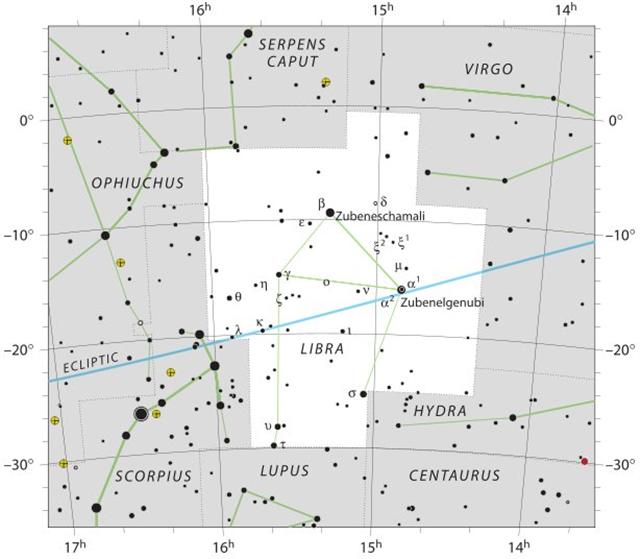
According to the round zodiac in the ceiling of the Dendera Temple the Sun Child (Horus) balanced on the Beam of Libra when the Wedjat Sun Eye was at Bharani:
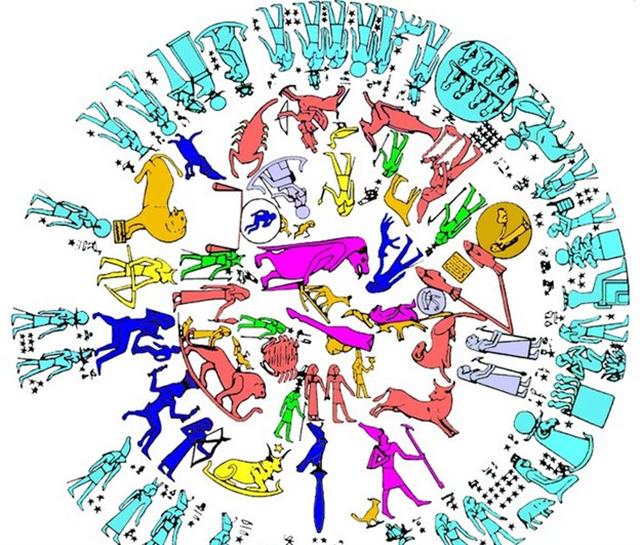
Rutua te pahu - the drums were sounding - when the sky was moving (rutua te maeva). Question is with how much the sky was moving. ... In China, every year about the beginning of April, certain officials called Sz'hüen used of old to go about the country armed with wooden clappers. Their business was to summon the people and command them to put out every fire. This was the beginning of the season called Han-shih-tsieh, or 'eating of cold food'. For three days all household fires remained extinct as a preparation for the solemn renewal of the fire, which took place on the fifth or sixth day after the winter solstice [Sic!] ...
If 'the beginning of April'
was the time for wooden clappers (probably equivalent to
rutua te pahu), then the stars which once upon a time had
told about the winter solstice must have moved ahead with around
365 + 91 (April 1) - 355 (December solstice) = 101 precessional
days, an incredibly long stretch of time. Instead the explanation could
rather be a change of the definition of where the year was
beginning - for instance a change from winter solstice to the
northern spring
equinox.
| Maeva T. 1. Move. Rangi-maeva = Moving Sky (name of a marae). 2. Greet, greeting. Henry. |
| Pahu Drum. Pahu-rutu-roa = Long-beating-drum. Barthel. M. Pahū. Tree gong. Starzecka.
Pahu uma, coffin; in modern usage, any sort of jar. Pahupahu = To dig a hole. Vanaga. A trough, barrel, cask, cradle, drum, chest, box; pahu nui, a kettle; pahu oka, a drawer; pahu papaku, coffin; pahu rikiriki, sheath; pahu viriviri, hogshead. Pahupahu, box. Churchill.
A trough, barrel, cask, cradle, drum, chest, box; pahu nui, a kettle; pahu oka, a drawer; pahu papaku, coffin; pahu rikiriki, sheath; pahu viriviri, hogshead; pahupahu, box. P Mgv., Ta.: pahu, a drum. Mq.: pahu, a drum, a large cylindrical container. (To.: bahu, a hollow tree set in water as a filter.) Sa.: pusa, a box. To.: buha, id. Fu.: pusa, id. Niue: puha, id. Pau.: puha, id. Pahuahi, lantern, beacon. Paukumi, closet, cupboard. Pahupopo, a mould; pahupopokai, cupboard for food. Pahure: 1. To sweep everything away. 2. To wound, to lacerate, scar, bruise, lesion, sore; pahurehure, to wound, to scratch; hakapahure, to wound. T Pau.: pahure, to be skinned; pahore, to peel off, to scale. Mgv.: pahore, to cut off, to chop, to slice. Ta.: pahore, to flay, to skin. Churchill 2. |
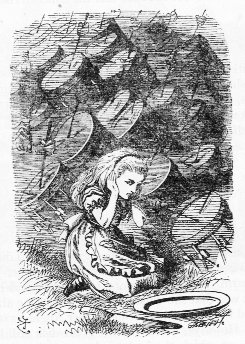
|
























